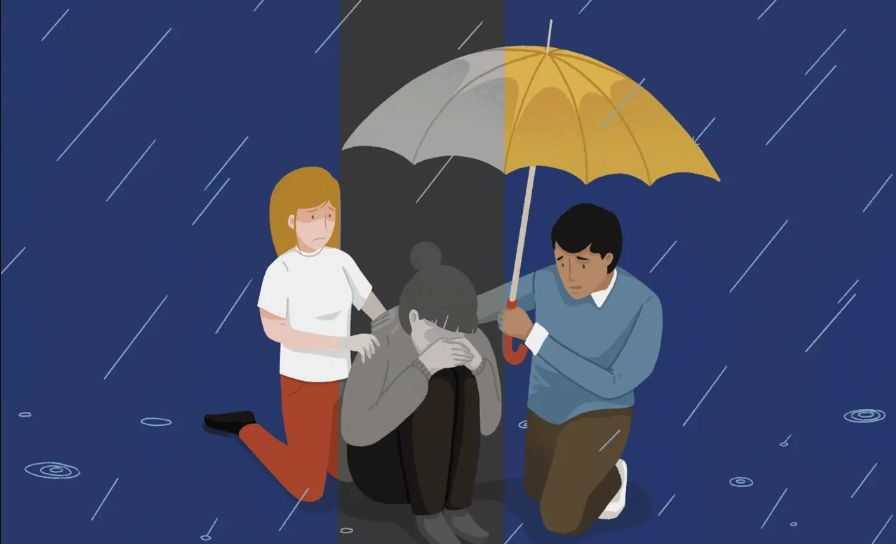Depression a common and serious medical illness that negatively affects how you feel, the way you think and how you act. It causes feelings of sadness and/or a loss of interest in activities you once enjoyed and can lead to a variety of emotional and physical problems and can decrease your ability to function at work and at home.
According to an article published in the New Vision in March 2019, Depression is the third most common reasons for admission to Butabika Hospital, after alcohol and drug abuse and organic mental illnesses with 1.7 million Ugandans suffering from depressive disorders. These numbers are staggering and are a cause for alarm hence the call for mental health awareness. But even as we bring awareness to the existence of these issues there is still a question of now that we know of this “depression” how can we deal with it.
I am depressed now what?
Reach out When you are experiencing a depressive episode, it is important that you reach out to people around you. A person experiencing a depressive episode is inclined to withdraw but reaching out to people can be useful. They might not change anything but at least you won’t be alone. If you find it difficult to trust people finding a support group can help. Here you will meet people who understand what you are going through and can encourage you.

Do things that make you happy. Engaging in activities you enjoy can help relax and re-energize your mind. Even if you don’t feel better right away, doing something pleasurable or distracting can help ease tension and gradually lift your mood.
Move your body. When going through a depressive episode even getting out of bed can be a daunting task. Research has shown that regular exercise can be effective in relieving depressive episodes and for the most benefit, you should have at least 30 minutes of exercise. However it’s ok to start small with just a 10 minute walk and keep increasing the time gradually. Finding a work up partner if motivation is an issue, walking a pet can be another way to get moving.
Eat well “Garbage in garbage out”, this is true for depressive episodes. What you eat can have an impact on how you feel. Reducing your intake of foods that can affect your brain and mood such as caffeine and alcohol is advisable. Minimize on your sugar and refined carb intake while eating more foods rich in Vitamin B12, folic acid and omega 3 fatty acids like leafy greens beans and fish. It is also important that you not skip meals which can leave you feeling irritable which would aggravate your depressive episode.
Feel a bit of sun on your face Getting a daily dose of sunlight can be useful because sunlight can boost serotonin levels and improve your mood. Ensure that you get outside daily for at least 15 minutes of exposure to the sun. You can also increase your exposure to the sun by opening windows and curtains.
Your feelings and thoughts are not always an acurate reflection of reality You are more than your feelings and your feelings are not the sum of your life. Depression paints everything in a negative light including how you view yourself, your future and the way people around you see you. Depressive episodes are usually characterized by negative thoughts and when these thoughts overwhelm you remember this is just a symptom and does not actually reflect your reality.
When you have such destructive thoughts it’s important to put these thoughts on the witness stand: “What’s the evidence that this thought is true? Not true?” “What would I tell a friend who had this thought?” “Is there another way of looking at the situation or an alternate explanation?” “How might I look at this situation if I didn’t have depression?”
As you cross-examine your negative thoughts, you may be surprised at how quickly they crumble. In the process, you’ll develop a more balanced perspective and help to relieve your depression.
Seek professional help
While all these tips may be useful, they are not meant to undermine the importance of professional help. Depression still remains a mental illness and it can be caused by a problem of the physiology of your brain (a deficiency in the amount or function of dopamine, serotonin and noradrenaline all of which are neurotransmitters which play a role in regulation of mood) which is treated by a doctor. Needing additional help does not imply weakness, depression is a disease and just like any other disease and it can be treated. These tips can be incorporated in your treatment plan as you receive professional help thus speeding up your recovery and preventing the depression from returning.

